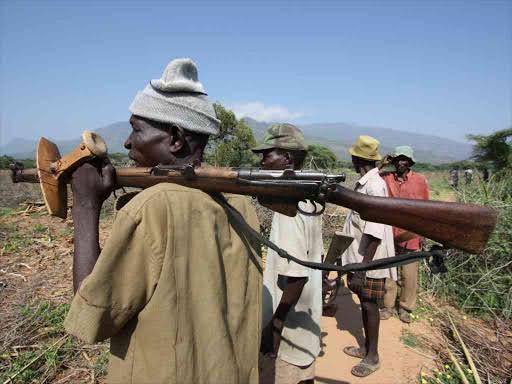Small arms and light weapons account for most of the African continent’s conflict-related deaths. Over 100 million light weapons circulate in Africa. About 8 million are in the hands of non-state actors in west Africa.

In 1998 the Economic Community of West African States (ECOWAS) established the world’s first small arms and light weapons moratorium. It became a legally binding convention in 2006.
African security officials participated in global efforts to end light and light weapons that led to a large part of the violence that affects countries throughout the continent.
During the gatherings in Nairobi, Kenya and Lome, Togo, security managers helped set the foundation for an international strategy to control the movement of light weapons and weapons (SalW) to reduce conservation. The Fourth Review Conference will focus on implementing the 2005 UN International Traceability Document, which requires all small arms and light weapons to carry unique identifying details, and states must maintain a register of firearms within their borders.

Kenya’s experience shows how serious the problem of small arms and light weapons is in Africa, and it also offers a possible solution. According to the Kenyan government, most of the weapons entering the illegal Kenyan market come from neighboring countries via small dealers. According to a government report submitted to the United Nations Office on Drugs and Crime, through intelligence sharing and multi-agency cooperation, Kenyan national security agencies have successfully reduced the threats to the United Nations posed by small arms and light weapons, often staying one step ahead of criminals.
The upcoming international conference will be the latest effort to contain the influence of small arms and light weapons in Africa. The continent’s leaders have established at least six regional or continental protocols, agreements or roadmaps aimed at preventing small arms, starting with the African Union’s Bamako Declaration on Africa’s Common Position on Nuclear Proliferation and the Illicit Circulation and Trafficking of Small Arms and Light Weapons.

The most recent effort, adopted in Lusaka, Zambia, in 2016, declared its intention to “silence Africa’s guns” by 2020. Christopher Kayoshe, acting head of the Disarmament Board, and the AU’s Reintegration/Security Sector Reform, told Nairobi the conference’s goal of silencing the guns had been delayed until 2030. The United Nations says African countries stockpile more than 40 million illegal small arms and light weapons, most of them imported. According to the African Union Commission and Small Arms Survey, approximately 80% of them have not been registered or identified, making them difficult for investigators to trace.
Small arms are weapons, such as a rifle or pistol, that can be carried and operated by a single person. Light weapons include mortars, anti-aircraft guns, and similar man-portable weapons that require a crew of two or more. Experts say small arms and light weapons are fueling conflicts across Africa, from uprisings in the Sahel to more than 100 groups vying for territory in eastern Democratic Republic of the Congo, to looting and regional conflicts in Kenya, Nigeria and beyond.
Security officials say porous borders and loose controls make it easy to transfer weapons from one country to another and from one group to another. That’s why, experts say, tighter borders and cross-border cooperation must be part of the plan to slow the flow of small arms and light weapons.
African Union officials are discussing a policy to ensure that the continent has a unified approach to the development of small arms and light weapons. They say the program needs money and new technology to track weapons from source to end user.
Security officials at the Nairobi conference are examining technological proposals that could improve the process of tracking weapons and distinguishing between illegal weapons and legal weapons.


